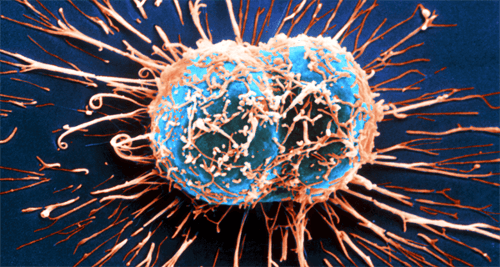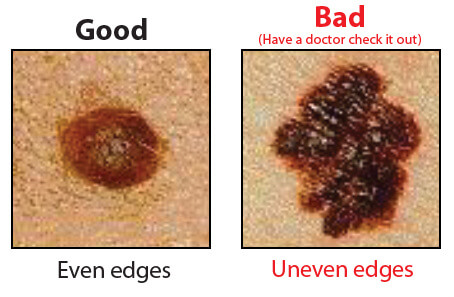11 Early Warning Symptoms of Cancer that Often Get Ignored

Every day hundreds of people around the world are diagnosed with different forms of cancer, and often it’s already at a very advanced stage. That’s why you should know about some of the early warning symptoms of cancer.
Often, malignant tumors have no symptoms at all. By the time they’re detected they’re often already in a stage that’s difficult to treat effectively. In most cases, early diagnosis is key. The more advanced your cancer is, the more likely it is you will succumb to the disease.
Because of this, it’s important to know some early warning symptoms of cancer that may seem quite unimportant. In today’s article, we’ll tell you about 11 early cancer clues that often get ignored.
Early warning symptoms of cancer: persistent cough or hoarseness

Shortness of breath
Many people who get diagnosed with lung cancer recall that they experienced feelings of being short of breath before they discovered they had this disease. Perhaps they overlooked it as a passing thing or a symptom of asthma.
Abnormal changes in bowel movements

Frequency of infection
Suffering from frequent infections could indicate that you have leukemia. Leukemia is a disease that’s caused by the abnormal production of white blood cells (leukocytes), which causes the body to lose its ability to fight off infections. In adults, it’s common to discover leukemia through symptoms like frequent high temperatures and fever, or other symptoms related to colds and the flu.
Read more: 10 Leukemia Symptoms That Usually Go Ignored
Changes in the urine

Typically these symptoms appear due to some kind of tumor or growth in the urinary tract. You should considered them to be clear signs that you need to see your doctor immediately.
Unexplained pain
If you suffer from chronic pain in your back, neck, legs, or other areas, it’s a good idea to check with your doctor. In this case, your pain could have to do with other symptoms we’ve described so far.
Changes in your skin or moles

Read more: Skin Cancer Warning Signs and What to Do About Them
Unexplained bleeding
A common symptom of cervical cancer is spotting or bleeding in between your normal periods. If you experience rectal bleeding, it could indicate colon cancer.
Frequent pelvic pain

Weight loss
Although sudden and unexplained loss of a few pounds might be considered a gift by some, the truth is that you should be wary of excessive and fast weight loss because it can be a symptom of cancer. If you’re not currently on a diet and you lose 10 or more pounds rapidly, it could be a sign of cancer of the pancreas, stomach, esophagus, or lungs.
Difficulty swallowing
The last of our early warning symptoms of cancer is a feeling of discomfort or difficulty when swallowing. It’s important to contact your doctor, because it could be a symptom of esophageal, stomach, or throat cancer.
All cited sources were thoroughly reviewed by our team to ensure their quality, reliability, currency, and validity. The bibliography of this article was considered reliable and of academic or scientific accuracy.
- Davis, A. S., Viera, A. J., & Mead, M. D. (2014). Leukemia: An overview for primary care. American Family Physician.
-
American Cancer Society, & American Cancer Society. (2012). What is stomach cancer? Www.Cancer.Org/Clinicaltrials.
-
Steinberg, S. M., Barkin, J. S., Kaplan, R. S., & Stablein, D. M. (1986). Prognostic indicators of colon tumors. The gastrointestinal tumor study group experience. Cancer. https://doi.org/10.1002/1097-0142(19860501)57:9<1866::AID-CNCR2820570928>3.0.CO;2-T
This text is provided for informational purposes only and does not replace consultation with a professional. If in doubt, consult your specialist.








